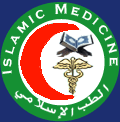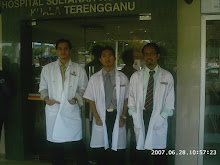Poor Sleep Before Rhinovirus Exposure Linked to Lower Resistance to Illness
January 13, 2009 — Poorer sleep efficiency and shorter sleep duration in the weeks before exposure to a rhinovirus are linked to greater susceptibility to the common cold, according to the results of a study reported in the January 12 issue of the Archives of Internal Medicine.
"Sleep quality is thought to be an important predictor of immunity and, in turn, susceptibility to the common cold," write Sheldon Cohen, PhD, from the Department of Psychology, Carnegie Mellon University in Pittsburgh, Pennsylvania, and colleagues. "This article examines whether sleep duration and efficiency in the weeks preceding viral exposure are associated with cold susceptibility."
The study sample consisted of 153 healthy men and women volunteers aged 21 to 55 years. For 14 consecutive days, participants reported their sleep duration and sleep efficiency, defined as percentage of time in bed actually asleep for the previous night and whether they felt rested. The investigators calculated average scores for each sleep variable during the 14-day baseline. Participants were then quarantined, inoculated with nasal drops containing a rhinovirus, and monitored for the development of a clinical cold on the day before and for 5 days after rhinovirus exposure. Clinical cold was defined as infection in the presence of objective signs of illness.
Participants who reported less than 7 hours of sleep were 2.94 times (95% confidence interval [CI], 1.18 - 7.30) more likely to get a cold than those with 8 hours or more of sleep, suggesting a graded association with average sleep duration. Similarly, participants with less than 92% sleep efficiency were 5.50 times (95% CI, 2.08 - 14.48) more likely to get a cold than those with 98% or more efficiency, also suggesting a graded association with sleep efficiency.
Differences in prechallenge virus–specific antibody titers, demographics, season of the year, body mass, socioeconomic status, psychological variables, or health practices did not explain the observed associations. The percentage of days feeling rested was not associated with clinical colds.
Limitations of the study include inability to draw causal inference and reliance on self-report.
"Poorer sleep efficiency and shorter sleep duration in the weeks preceding exposure to a rhinovirus were associated with lower resistance to illness," the study authors write. "Because of the prospective design and the controls for multiple confounding factors, these results strongly suggest the possibility of sleep playing a causal role in cold susceptibility. Moreover, the use of a maximally reliable multiple day assessment of sleep habits increases our confidence in the findings of this study."
The National Heart, Lung, and Blood Institute; the National Institute of Allergy and Infectious Diseases; and the John D. and Catherine T. MacArthur Foundation Network on Socioeconomic Status and Health supported this study. The study authors have disclosed no relevant financial relationships.
Arch Intern Med. 2009;169:62-67.



0 comments:
Post a Comment